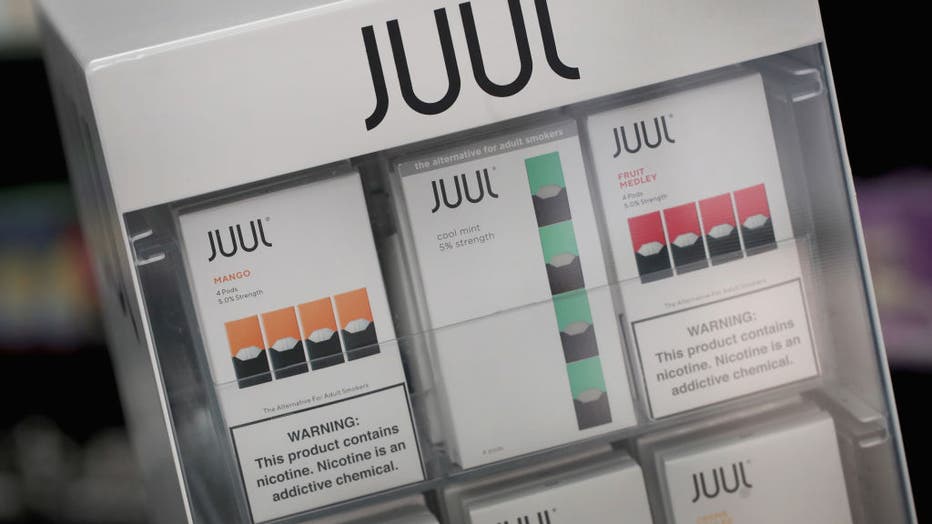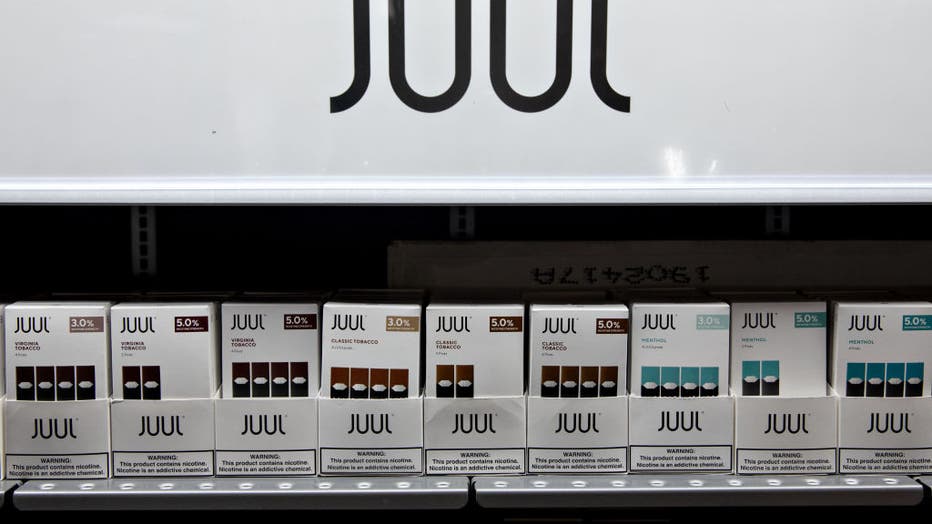Juul to pay $15.2 million to DC for marketing vaping products to teens
Juul to pay $15.2 million to DC for marketing vaping products to teens
Embattled electronic cigarette-maker Juul Labs Inc. will pay $15.2 million to the District of Columbia to resolve allegations that the company marketed nicotine products to youth and misled consumers about the highly-addictive qualities of its products. FOX 5's Stephanie Ramirez has the details on the settlement.
WASHINGTON - Embattled electronic cigarette-maker Juul Labs Inc. will pay $15.2 million to the District of Columbia to resolve allegations that the company marketed nicotine products to youth and misled consumers about the highly-addictive qualities of its products.
The settlement, which is the largest that the DC Office of the Attorney General (OAG) has ever secured under the Consumer Protection Procedures Act, was announced on Wednesday by D.C. Attorney General Brian Schwalb.
The agreement is part of the largest settlement that Juul has reached so far for its role in youth vaping. As part of the agreement, Juul will pay a total of $462 million to New York, California, Colorado, Illinois, Massachusetts, New Mexico and D.C.

CHICAGO, IL - SEPTEMBER 13: Electronic cigarettes and pods by Juul, the nation's largest maker of vaping products, are offered for sale at the Smoke Depot on September 13, 2018 in Chicago, Illinois. The Food and Drug Administration (FDA) has ordered
Like some other settlements reached by Juul, this latest agreement includes various restrictions on the marketing, sale and distribution of the company's vaping products. For example, it is barred from any direct or indirect marketing that targets youth, which includes anyone under age 35. Juul is also required to limit the amount of purchases customers can make in retail stores and online.
In a statement, DC AG Schwalb called out Juul trying to cover up the dangers of its products.
"JUUL preyed on children for profit, implementing an intentionally deceptive, manipulative marketing campaign targeting underage users with the intention of creating addicted customers," said AG Schwalb. "JUUL knew how addictive and dangerous its products were and actively tried to cover up that medical truth. The Office of the Attorney General prioritizes protecting District children’s health and safety and ensuring our kids can live healthy, hopeful lives. Now, thanks to the diligent work by our legal teams, JUUL has ended its harmful, illegal conduct and must put millions of dollars towards mitigating the public health damage it caused."

Refill pods for Juul Labs Inc. e-cigarettes are displayed for sale at a store in Princeton, Illinois, U.S., on Monday, Sept. 16, 2019. Faced with a worsening epidemic of teenage vaping and a mysterious illness stalking users of cigarette alternatives
A spokesperson for the Washington D.C.-based Juul said that with Wednesday's settlement, "we are nearing total resolution of the company’s historical legal challenges and securing certainty for our future."
The spokesperson added that underage use of Juul products has declined by 95% since 2019 based on the National Youth Tobacco Survey. According to the CDC though, since surveys were administered online instead of on school campuses during the pandemic, the results cannot be compared to prior years.
In September, Juul agreed to pay nearly $440 million over a period of six to 10 years to settle a two-year investigation by 33 states into the marketing of its high-nicotine vaping products to young people. That settlement amounted to about 25% of Juul’s U.S. sales of $1.9 billion in 2021.
How the opioid crisis is impacting vaping in schools
As school systems continue to warn students about the current opioid and Fentanyl crisis, many parents across the region have also been raising concerns about vaping. FOX 5's Stephanie Ramirez explains why.
Three months later, the company said it had secured an equity investment to settle thousands of lawsuits over its e-cigarettes brought by individuals and families of Juul users, school districts, city governments and Native American tribes.
Juul rocketed to the top of the U.S. vaping market about five years ago with the popularity of flavors like mango, mint and crème brûlée. But the startup’s rise was fueled by use among teenagers, some of whom became hooked on Juul’s high-nicotine pods.
Parents, school administrators and politicians have largely blamed the company for a surge in underage vaping.
The Associated Press contributed to this report.

